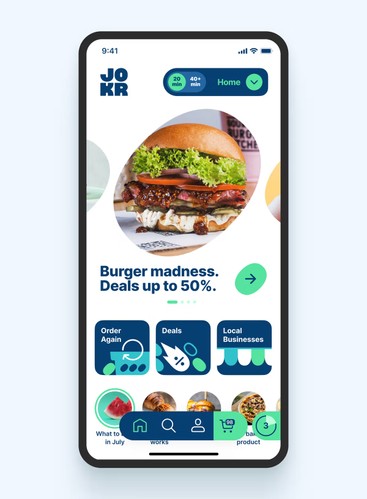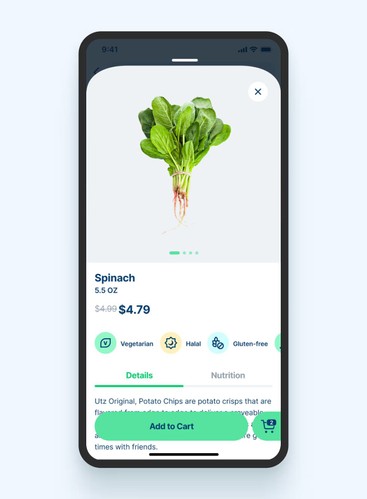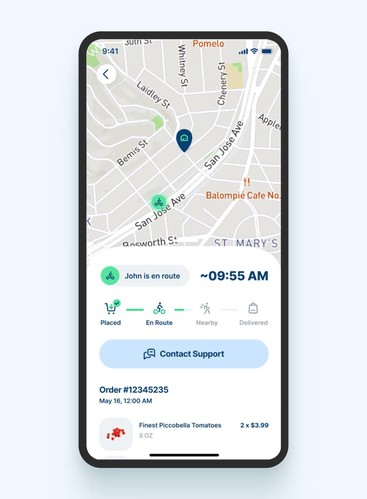<Project id="jokr" />
JOKR
Smart grocery shopping app powered by AI




“Although he started as a freelancer, Mohamed integrated seamlessly with our team, delivered full-stack features end-to-end, worked proactively across time zones, and shipped well-tested, reliable code while supporting other engineers.”—Ben Chen
VP of Engineering, JOKR
Project Overview
JOKR is an on-demand grocery app that enables quick home deliveries from personalized lists. I led work across backend services and internal dashboards, enabling safe, fast iteration as traffic and catalog complexity grew.
Challenges
- Ship new features quickly across multiple GraphQL services without breaking clients
- Give Ops team reliable tooling for managing catalog, content, and promotions.
- Improve performance, reliability, and developer velocity under growth
What I built
- Federated GraphQL microservices
- Designed schemas/contracts optimized for Apollo Federation.
- Delivered resolvers and data layers with strict typing and validation.
- Standardized schema contracts and versioned releases, reducing regressions.
- Internal dashboards (React + Material UI)
- Built dashboards for Operations to manage entities exposed by the services.
- Built reusable packages/component libraries to standardize quality and shorten delivery cycles.
- Added feature flags and audit logs to keep changes traceable.
- CI/CD and release hygiene
- PR preview environments for services and dashboards.
- Automated unit/E2E tests (Jest, Cypress) as required PR checks.
- Docker/Kubernetes/Helm deploys to staging/production via GitHub Actions and Terraform.
- Slimmer images and parallelized steps to shorten deploy time.
- Observability and reliability
- Structured logging, metrics, and traces in Datadog with actionable alerts.
- Incident runbooks that lowered MTTR and improved on-call confidence.
- Hardened input validation and data access and Auth0/JWT scope enforcement.
- Performance & scale
- Sustained thousands of req/min at low p95 latency with DataLoader batching, caching, and efficient pagination.
- Load testing to validate capacity and catch regressions before release.
- Optimized media delivery with Cloudflare to cut payload size and improve render time.
- AI-powered product recommendations
- Integrated a recommendations service using signals (order history, category affinity, interests).
- Surfaced in app and controllable from dashboards.
- Added guardrails (fallbacks, caps, telemetry) to keep recs safe and measurable.
Impact
- Sustained thousands of requests/min at low p95 latency (validated by load tests)
- Fewer regressions via contract discipline and versioned releases
- Higher delivery velocity with previews, checks, and standardized tooling
- Faster incident response (Datadog + runbooks → lower MTTR)
- CTR/AOV lift from personalized recommendations, contributing to revenue growth
Collaboration
- Partnered with Product to scope features and clarify trade-offs.
- Worked with Design on usable, consistent internal tooling.
- Co-led CI/CD with DevOps: standardized GitHub Actions/Terraform workflows and Kubernetes/Helm deploys; aligned on observability, alerts, and runbooks.
- Collaborated with Operations to map real workflows, add feature flags.
- Performed peer reviews and mentored engineers on federation patterns, testing, security, and observability best practices.
What I’d do next
- Add contract tests between services to catch schema drift earlier
- Scenario-based load tests tied to growth projections
- Expand recs with a feature store and clearer offline evaluation